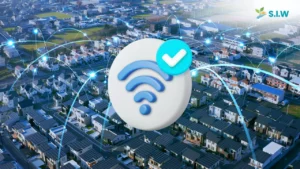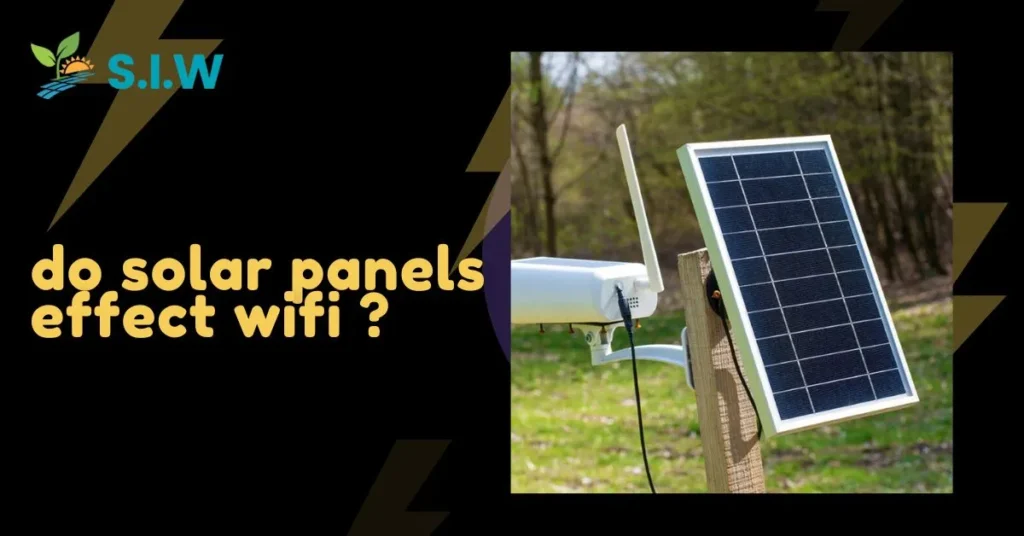With the rapid adoption of solar energy worldwide, more individuals and businesses are integrating solar panels into their properties. A common question that arises in this tech-driven age is: Do solar panels affect WiFi, TV, or cellular signals? With seamless internet access being crucial for work, communication, and entertainment, understanding this interaction can help address potential concerns and dispel common misconceptions.
Understanding Solar Panel Functionality
To evaluate whether solar panels could impact WiFi, it’s essential to understand the technology behind them. Solar panels convert sunlight into electricity through photovoltaic (PV) cells, generating direct current (DC) electricity, which is then converted to alternating current (AC) by inverters for home use. This process, focused solely on generating electrical power, does not emit radio waves or signals that interfere with WiFi frequencies of 2.4 GHz and 5 GHz.

Sources of Potential Interference
Solar panels themselves do not emit electromagnetic interference (EMI), as they lack the complex circuits required for such emissions. However, other components, particularly inverters, can occasionally introduce minor interference under certain circumstances:
- Inverter EMI: Inverters convert DC power from solar panels into AC, which your home can use. While they are generally designed to limit EMI, a malfunctioning or improperly installed inverter could emit low-level EMI, potentially affecting nearby WiFi or cell reception. High-quality inverters with proper shielding help mitigate these risks.
- Physical Obstructions: Solar panels installed too close to WiFi routers or antennas may physically block signal paths, especially in homes where walls or additional barriers could further weaken signals. Properly locating both the solar components and routers reduces these issues.
- Electrical Noise from Cabling: While solar panels don’t produce EMI, nearby AC cables from inverters or other electrical devices may generate electrical noise, particularly if installed too close to coaxial cables. Adhering to best installation practices, including proper separation of different cable types, reduces this risk.
Mitigating Potential Interference from Solar Systems
If you’re concerned about possible signal interference, there are a few effective strategies that ensure optimal functionality for both solar and WiFi systems:
- Invest in Quality Inverters: Choose well-shielded, high-quality inverters that meet industry EMI standards to minimize any potential interference. Inverters with built-in EMI filtering are especially effective for homes relying on consistent WiFi access.
- Router Placement Optimization: Maintain a reasonable distance between the WiFi router and the solar energy system’s components. This reduces the chance of signal disruption and allows the router to perform optimally.
- Use WiFi Extenders or Mesh Systems: For larger homes or areas with weak signal coverage, using WiFi extenders or mesh networks can enhance signal strength, bypassing any minor interference from nearby devices.
- Consult a Professional Installer: Engaging certified, experienced professionals ensures compliance with best practices for solar installation, including proper grounding, cable arrangement, and device separation, reducing any EMI risks.
Key Takeaways
In summary, solar panels themselves do not interfere with WiFi, TV, or cellular signals. Occasional exceptions may arise from other system components, such as inverters or improper installations. Adhering to installation best practices and employing certified professionals can ensure minimal risk of interference, allowing you to enjoy both uninterrupted internet connectivity and the benefits of clean, renewable energy from your solar system.
By choosing quality components, optimizing device placement, and consulting knowledgeable professionals, you can integrate solar energy into your life without sacrificing connectivity.








